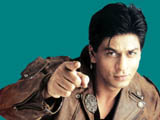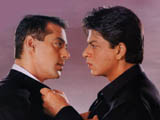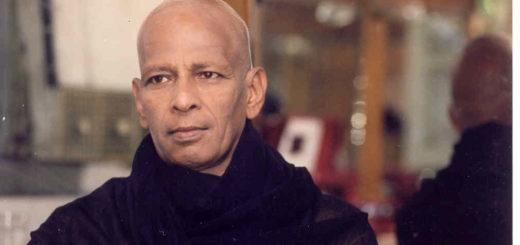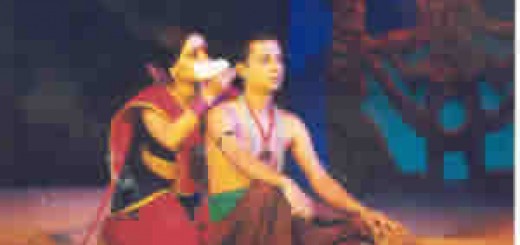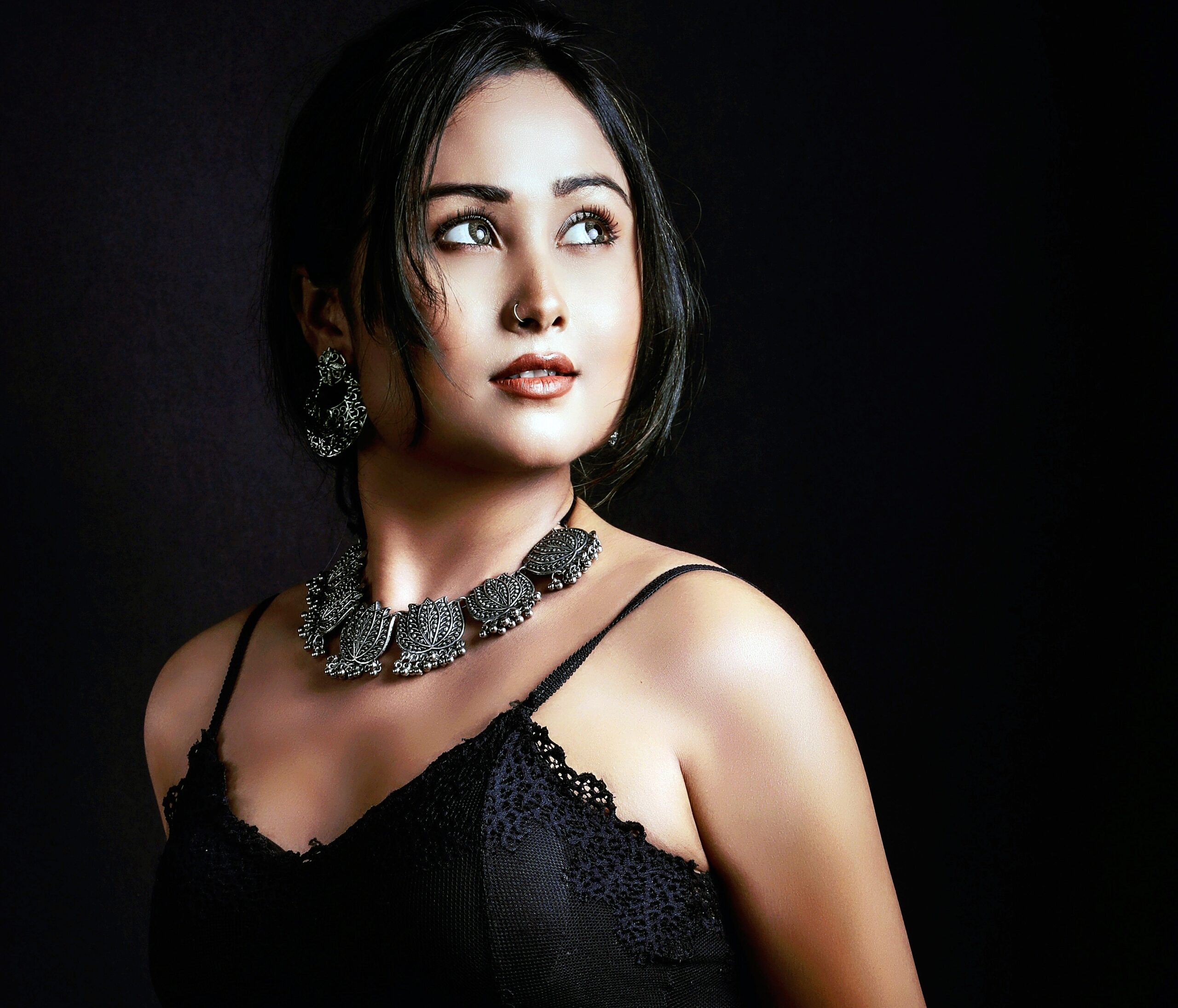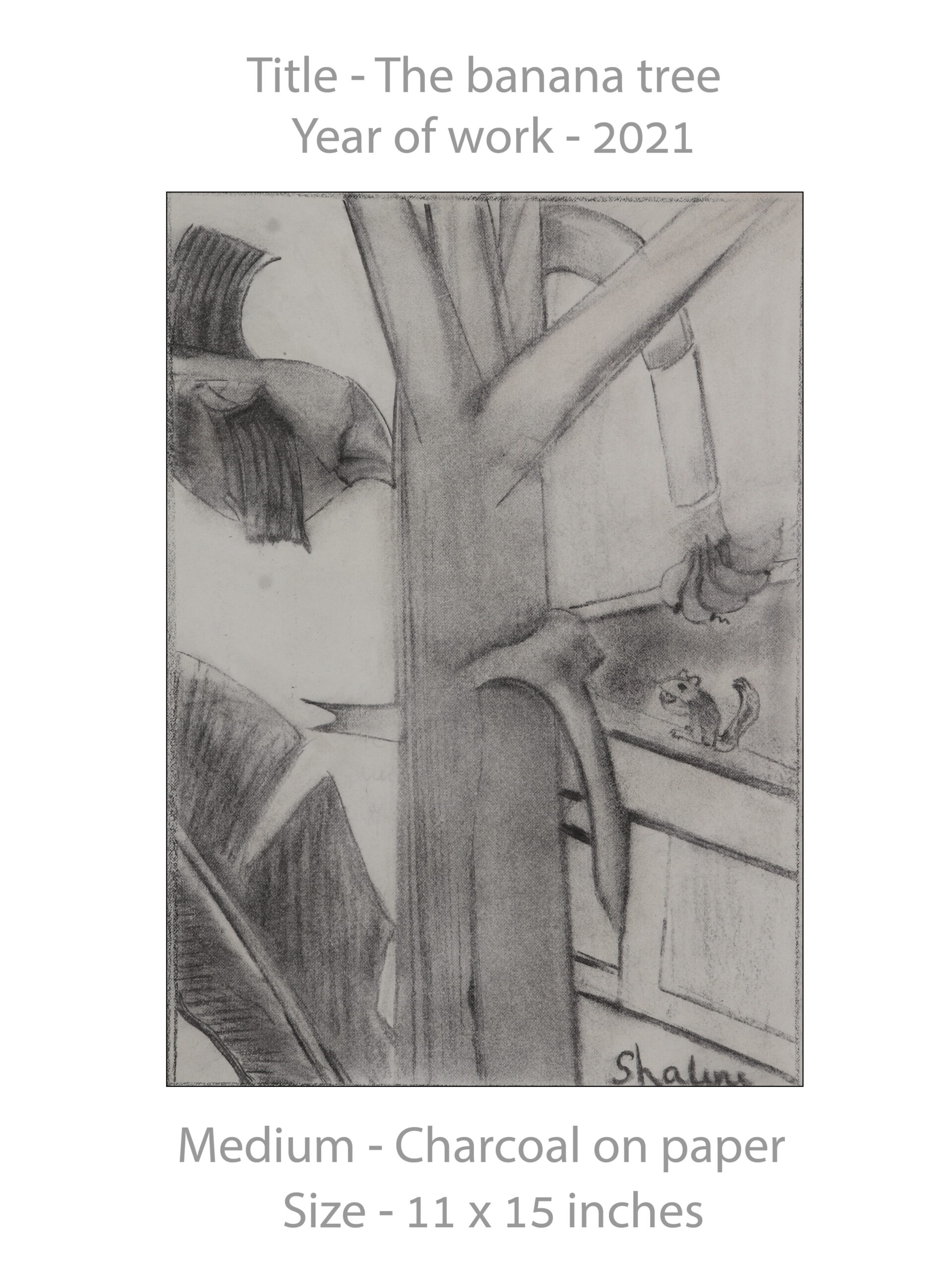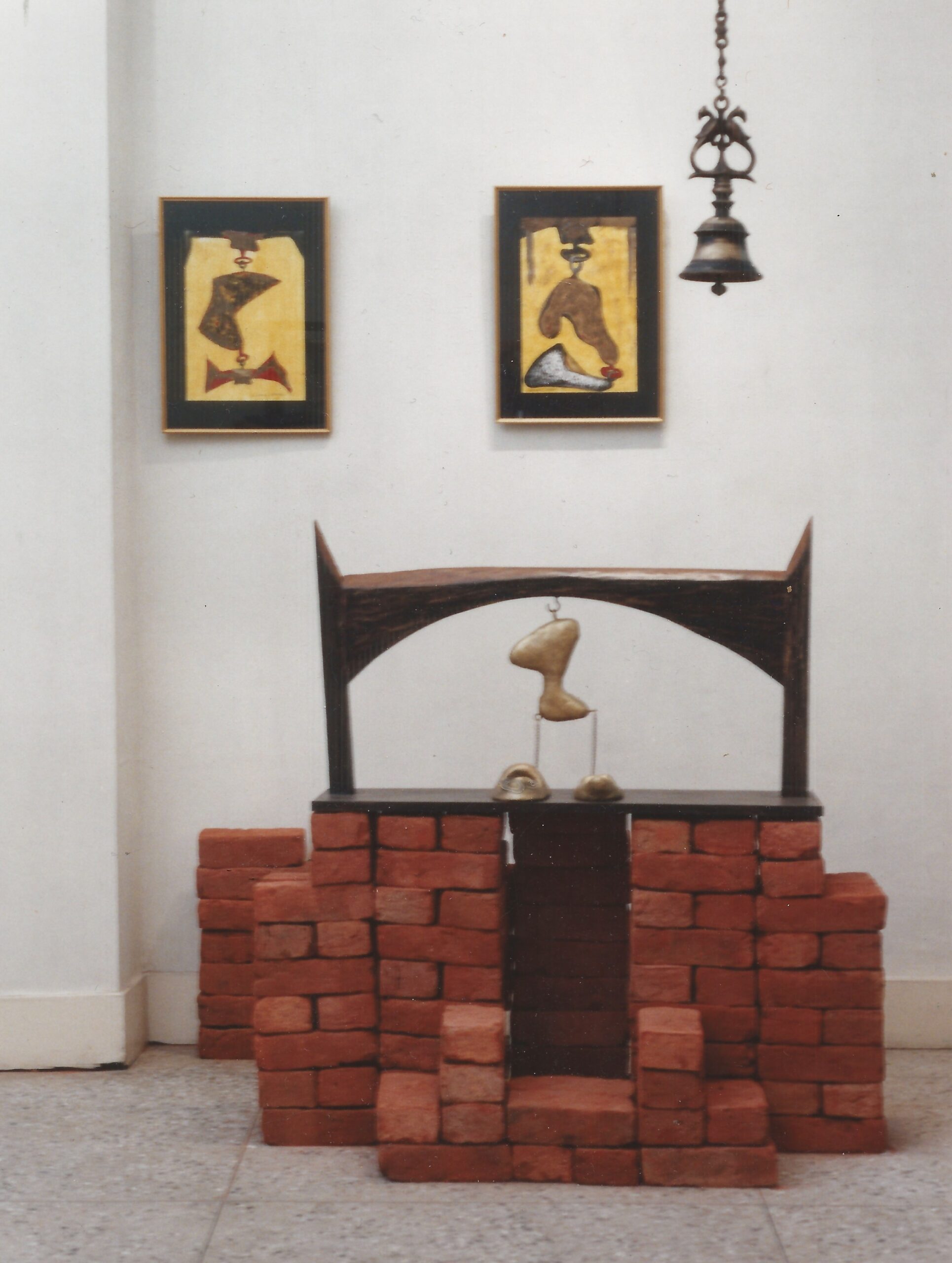Secular Indian Cinema
Secular Indian Cinema
-Manohar Khushalani
Above:- Shah Rukh Khan (L) Salman Khan (R) Shah Rukh Khan
At a time when attempts are being made to divide the world and also the Indian society on the basis of religion, it becomes all the more relevant to emphasise the secular nature of this ancient civilisation. The great tolerance of our race and the concept of universal brotherhood that has awarded the Indians with International respectability. And what better way can there be than to examine the role of Muslims in the most popular of our art forms – Cinema. It just took a few television serial like Fauji and Circus, to bring the young, then scrawny looking, Shah Rukh Khan to limelight. After that, it became just a matter of time before he entered Bollywood. Today, Shahrukh has completed over a decade as the unchallenged monarch of the Indian Film Industry. After Amitabh Bachchan, he is the industry’s first super star. He is also one of the most highly awarded Indian actors of Bollywood. Besides a host of other awards, he got the Filmfare Best Actor Awards in 1993, 1996, 1997, 1998 and 2002 forBaazigar, Dilwaale Dulhaniya Le Jayenge, Dil To Pagal Hai, Kuch Kuch Hota Hai and Devdas, respectively. Shah Rukh Khan is a Muslim, and like so many of his predecessors and contemporaries in Bollywood, he belongs to the largest minority community (110 million) in India. His not being a Hindu has not prevented him one bit from reaching the top of the ladder. His popularity is amply demonstrated by the fact, that, in a unique poll, he has been selected by Indians from all over the world, as only the second Bollywood actor, after Amitabh Bachchan, to join the select Wax World of Madame Tussad’s. Similarly, Shabana Azmi, a Muslim actress, who was earlier part of the parallel cinema movement of art films, was ultimately absorbed by the commercial cinema of Bollywood, primarily on the dint of her talent. Shabana was never a star, but, like Shah Rukh she has won a large number of accolades . She has acted in 117 films and won the National Awards for Ankur, Arth and Paar, Filmfare Awards for Arth, Bhaavana and Swami and the Screen Videocon Best Supporting Actress Award for Mrityudand Shabana belongs to a very illustrious family, which has contributed a lot to Indian Cinema. Her father Kaifi Azmi contributed as a lyricist and writer to 28 films. Some of his lyrics like “Jaane kyaa dhuundhatii rahatii hain ye aankhen mujhame” are all time classics. Shabana’s husband Javed Akhtar is also a highly celebrated and respected lyricist, writer and thinker who has contributed to over 36 films. Even Shabana’s niece Tabbu is doing exceedingly well in the box office and winning many awards. This is just a fragment of the contribution of Muslims to Bollywood, where entire families have been absorbed in every creative field possible.
The history of Bollywood itself is totally linked to the history of Indian Cinema. The first film ever shown in India was way back in 1896 by a representative of the Lumiere Brothers, since then there has been no looking back. Despite the fact that the Industry was evolving separately in Bombay, Calcutta & Madras, India was a large cauldron in which various regions interacted and used each other as a bouncing board. It is interesting therefore that the first major film on the Hindu-Muslim communal divide was made in Mumbai by Dhiren Ganguly, a product of Tagore’s Shantiniketan in Bengal. The film was called Razia Begum and was financed by the Muslim Nawab of Hyderabad. It was the story of a Muslim Queen of the slave dynasty who fell in love with a Hindu Subject. Yet another film, Mughal-e-Azam, on a similar subject, produced much later, in the sixties, by a Muslim producer, K. Asif, was an all time hit. It was the romantic story of a royal prince Salim, the son of the mighty emperor Akbar, who fell in love with a Hindu court dancer Anarkali. The film was a big budget extravaganza, studded with songs and dance. However the first film based on this historical event was by Charu Roy in 1928. It was called Loves of a Mughal Prince. In fact there was a remake of Razia Begum as well by another Muslim producer Kamal Amrohi in 1983 which did much better in the box office than its predecessor. Kamal Amrohi was married to a highly rated and admired Muslim actress Mahajabeen whose screen name was Meena Kumari. It was customary at that time for Muslim artists to use Hindu aliases, just as the highly awarded actor Dilip Kumar, the all time legend of Bollywood was actually Yusuf Khan in real life. After his debut in Jwar Bhata in 1944, Dilip played a variety of characters over a span of six decades; but nostalgiaphiles venerated him as the king of tragedy. His most successful films were Andaz, Aan, Daag, Madhumati, Ganga Jamuna and Ram Aur Shyam. However his performances in Oedipal dramas Deedar and Devdas are often considered his greatest performances. It is indeed poetic justice that Devdas achieved national acclaim half a century later again with a Muslim actor in the lead role – Shah Rukh Khan. The names of Muslims who have contributed to Indian Cinema would fill many pages like this one, but more of that later.



